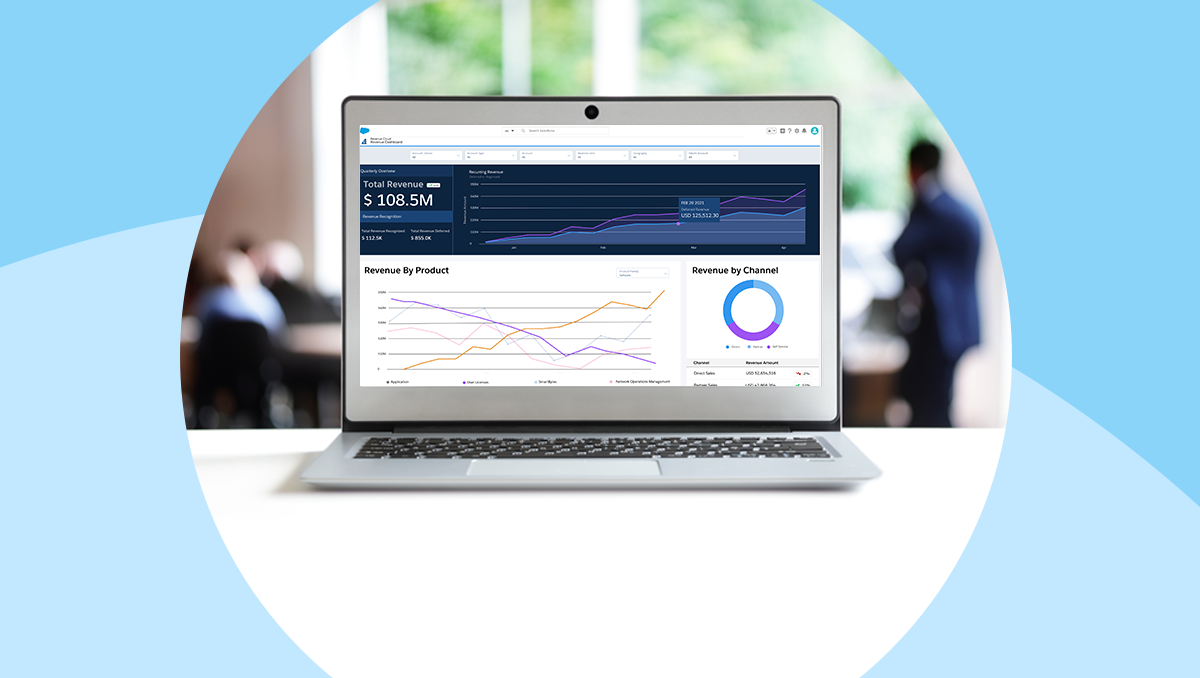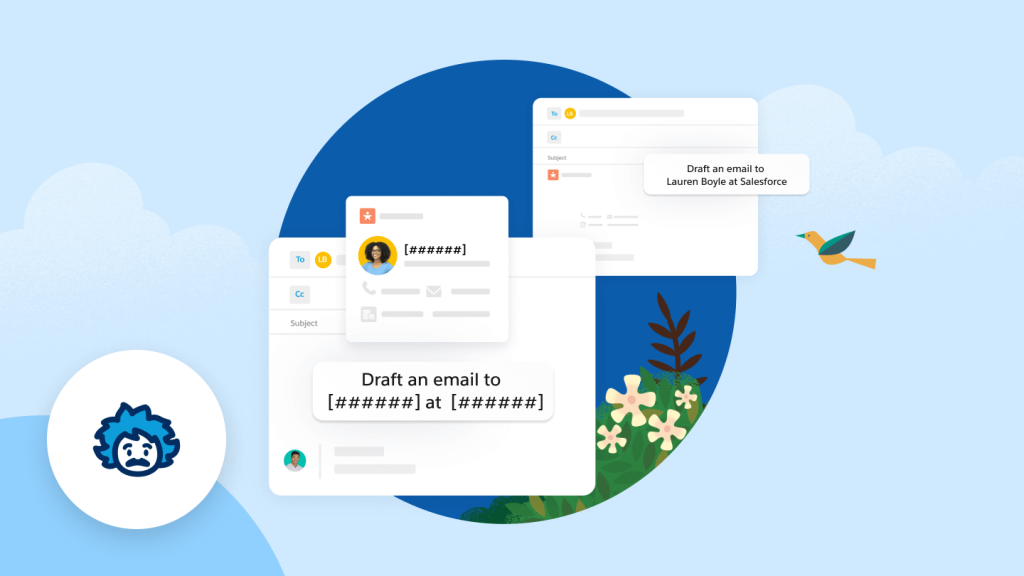In today’s fast-paced, digital economy, managing revenue isn’t just about closing deals; it’s about optimizing every step from the initial customer interaction to the final payment and beyond. This is where Salesforce Revenue Cloud steps in, offering a comprehensive suite of solutions designed to streamline, automate, and provide deep insights into your entire revenue lifecycle.
At its core, Salesforce Revenue Cloud is an integrated platform built on the Salesforce ecosystem that brings together key functionalities like Configure, Price, Quote (CPQ), Billing, Subscription Management, and Revenue Recognition. It aims to eliminate the traditional silos between sales, finance, and operations, providing a unified view of your revenue processes and empowering businesses to grow efficiently and effectively.
What Makes Up Salesforce Revenue Cloud?
Salesforce Revenue Cloud isn’t a single product, but rather a powerful combination of capabilities that work seamlessly together:
- Configure, Price, Quote (CPQ): This is the foundation for accurate and efficient quoting. CPQ automates the process of configuring complex products and services, applying dynamic pricing rules (including discounts, bundles, and tiered pricing), and generating professional, error-free quotes. This significantly speeds up the sales cycle and reduces manual errors.
- Billing: Beyond just generating invoices, Salesforce Billing handles the entire billing process, from managing one-time, subscription, and usage-based models to automating payment collections and handling amendments, cancellations, and renewals with precision. It ensures timely and accurate transactions, improving cash flow and reducing disputes.
- Subscription Management: For businesses with recurring revenue models, this component is crucial. It automates the entire subscription lifecycle, from initial sign-up and usage tracking to renewals and payment processing, ensuring continuous service delivery and minimizing revenue leakage.
- Revenue Recognition: Compliance with accounting standards like ASC 606 and IFRS 15 is vital. Revenue Cloud automates complex revenue recognition processes, ensuring that revenue is recognized accurately and aligns with contract terms, providing audit-ready financial records and real-time revenue insights.
- Contract Lifecycle Management (CLM): While often an add-on or integrated component, CLM capabilities within Revenue Cloud help manage contracts from creation to renewal. This ensures adherence to contract terms and provides visibility into contract performance, further streamlining the quote-to-cash process.
- Partner Relationship Management (PRM): For businesses that leverage partners, Revenue Cloud can also facilitate collaboration with them, ensuring smooth revenue sharing and joint sales efforts.
- Revenue Operations and Analytics: With real-time dashboards and predictive forecasting powered by AI, Revenue Cloud provides deep insights into revenue performance, helping sales, finance, and operations teams make data-driven decisions to optimize pricing strategies, identify cross-selling opportunities, and improve customer retention.
Why Does Your Business Need Salesforce Revenue Cloud?
The benefits of implementing Salesforce Revenue Cloud extend across various departments and directly impact your bottom line. Here are compelling reasons why your business needs it:
- Accelerated Sales Cycles and Improved Efficiency:
- Faster Quoting: With automated CPQ, sales teams can generate complex, accurate quotes in minutes, not hours or days, leading to quicker deal closures.
- Reduced Errors: Manual errors in quoting and billing are costly. Revenue Cloud minimizes these, ensuring pricing consistency and compliance.
- Streamlined Workflows: By integrating sales and finance processes, the platform eliminates bottlenecks and allows teams to focus on strategic activities rather than administrative tasks.
- Enhanced Revenue Accuracy and Compliance:
- Precise Billing: Automates invoicing and payment processing for all revenue models (one-time, subscription, usage-based), ensuring you bill the right amount every time.
- Automated Revenue Recognition: Ensures adherence to accounting standards (ASC 606/IFRS 15), providing accurate financial reporting and reducing the risk of non-compliance.
- Reduced Revenue Leakage: By automating processes and ensuring accuracy, Revenue Cloud helps prevent lost revenue due to billing errors, missed renewals, or incorrect pricing.
- Better Customer Experience:
- Flexible Offerings: Supports various monetization models, including complex subscription and usage-based pricing, allowing you to offer more flexible options to your customers.
- Consistent Interactions: Provides a unified view of customer data across sales, service, and finance, leading to more personalized and consistent interactions.
- Faster Onboarding and Service: Streamlined processes mean quicker deal finalization and smoother onboarding, leading to higher customer satisfaction and loyalty.
- Scalability and Agility for Growth:
- Supports Complex Models: Designed to handle complex product catalogs, pricing structures, and recurring revenue models, making it ideal for growing businesses, especially in SaaS and subscription-based industries.
- Adaptability to Market Changes: Enables businesses to quickly launch new products, services, and pricing models, allowing them to respond to market demands and gain a competitive edge.
- Seamless Integration: As part of the broader Salesforce Customer 360 platform, it integrates seamlessly with Sales Cloud, Service Cloud, and other ERP/finance systems, ensuring data consistency across your enterprise.
- Improved Financial Visibility and Strategic Decision-Making:
- Real-Time Analytics: Gain immediate insights into cash flow, deferred revenue, accounts receivable, and other key financial metrics.
- Predictive Forecasting: Leverage AI and historical data for more accurate revenue forecasting, enabling better strategic planning.
- Cross-Functional Alignment: Bridges the gap between sales and finance, fostering collaboration and ensuring everyone works with the same, accurate revenue data.
Who Benefits Most from Salesforce Revenue Cloud?
While any business can benefit from improved revenue management, Salesforce Revenue Cloud is particularly impactful for:
- SaaS and Subscription-Based Businesses: Its robust subscription and usage-based billing capabilities are critical for managing recurring revenue and churn.
- Businesses with Complex Product Offerings: Companies with extensive product catalogs, configurable products, and intricate pricing models will find immense value in CPQ.
- High-Growth B2B Companies: As businesses scale, manual processes become unsustainable. Revenue Cloud provides the automation and scalability needed to manage increasing transaction volumes.
- Organizations Seeking Compliance: For those needing to adhere to stringent revenue recognition standards like ASC 606 and IFRS 15, the automated compliance features are invaluable.
Conclusion
In an era where every revenue dollar counts, optimizing your revenue lifecycle is no longer a luxury but a necessity. Salesforce Revenue Cloud provides the unified, intelligent platform that empowers your sales, finance, and operations teams to work together seamlessly, accelerate deals, ensure accuracy, and gain the insights needed to drive sustainable growth. By investing in Salesforce Revenue Cloud, your business isn’t just acquiring a software solution; it’s adopting a strategic approach to unlock its full revenue potential.




